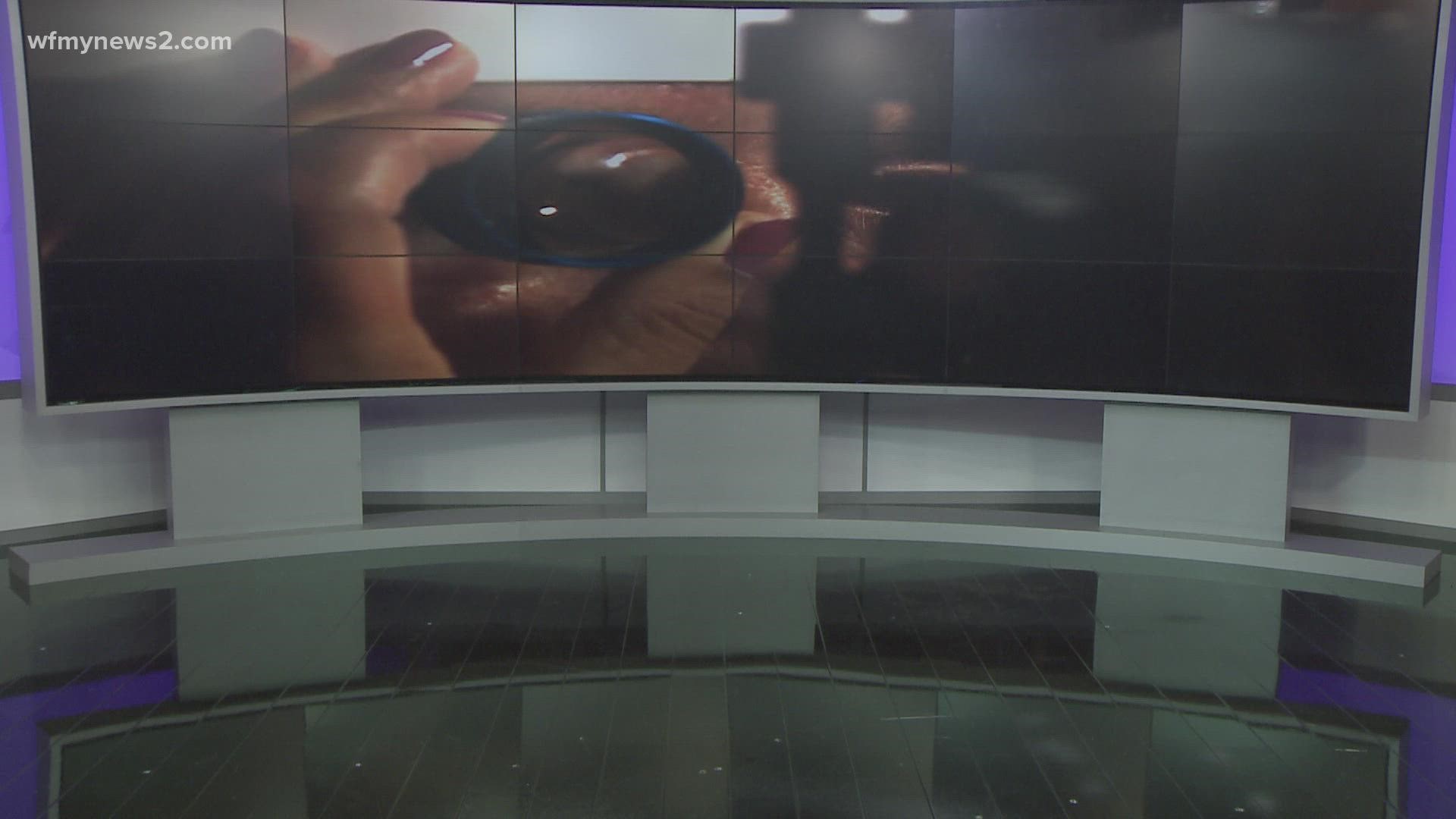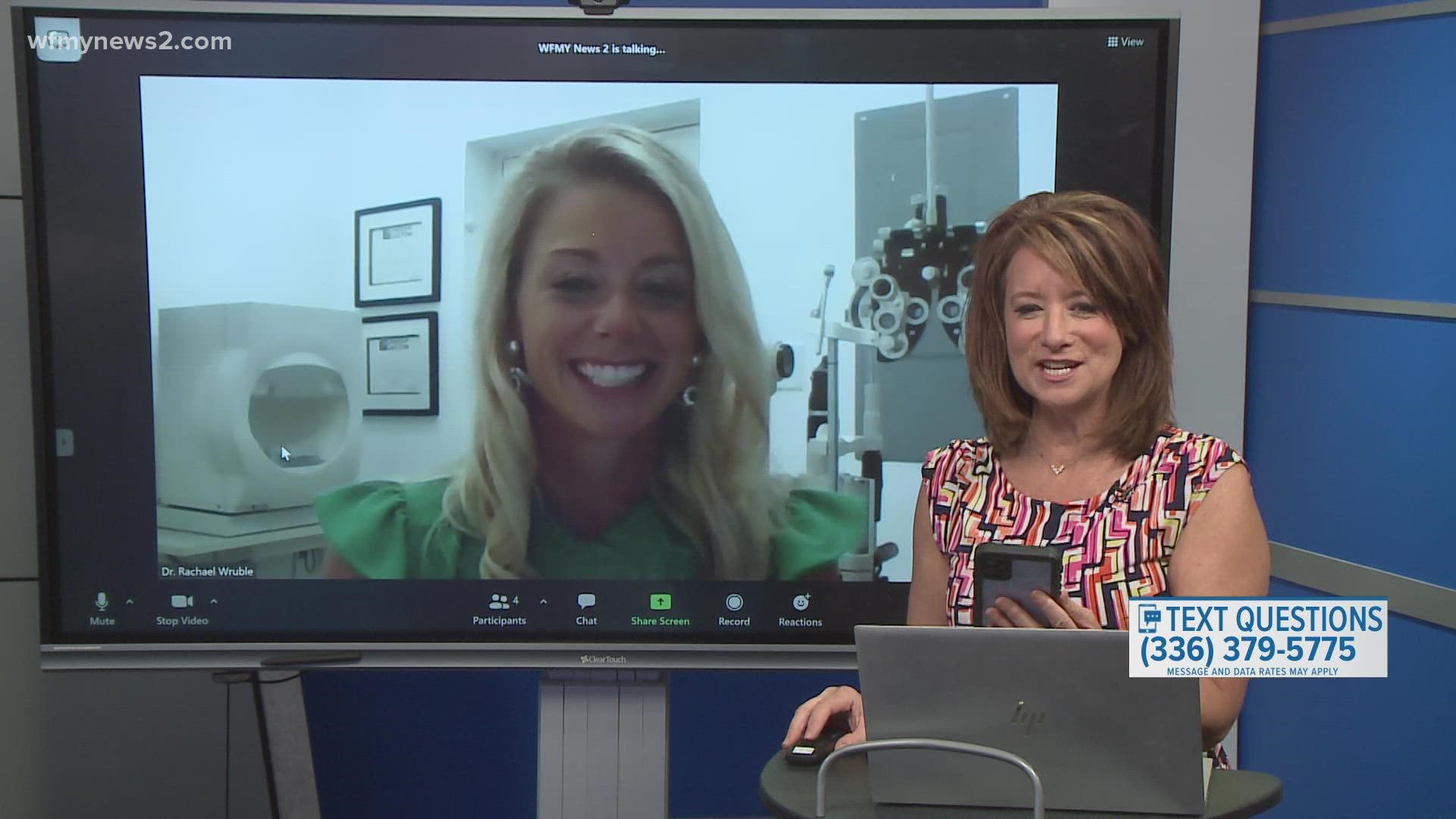GREENSBORO, N.C. — When was the last time you had your eye checked? If it's been several years, you might want to make that appointment now because eye health can impact many aspects of your life.
Dr. Rachael Wruble, the president of the North Carolina Optometric Society, joined us on 2 Wants to Know to answer your questions.
Common Misconceptions in Eyecare
- If needed, wearing prescription lenses doesn’t make your eyesight weaker; the lenses simply act as an aid to help you see better.
- Myth: you don't need regular eye exams if you have good vision. Many eye diseases develop slowly over time, often without any real warning signs, but can lead to blindness, such as Glaucoma, Diabetic Retinopathy, Cataracts, Macular Degeneration.
- Can spending too much time looking at screens like computers, tablets, and smartphones be a problem? The answer is yes. The American Optometric Association (AOA) says that too much time on digital screens can cause Computer Vision Syndrome (CVS), also known as Digital Eye Strain. Symptoms include headaches, blurry vision, dry eyes, and neck and shoulder pain.
- Optometrists diagnose, treat, and manage eye disease; they just don't make glasses.
Eye exams during COVID
- Is it safe? Yes
- All optometrists and staff are still wearing masks and following CDC protocol for medical offices.
- With many counties going back to a mask mandate we are finding many patients still having the fogging issue with masks. Practices have seen an increase in contact lens wear due to glasses fogging.
Back to School Eye Exams
- While seeing a pediatrician is necessary for a physical, looking at the eye chart on the wall does not constitute an eye exam.
- What your local eye doctor will check for? - amblyopia (lazy or weak eye), eye alignment and muscle movement (misaligment of the eyes can cause problems in school such as double vision, reversal of letters, skipping words or sentences while reading), color vision, depth perception (how well do the eyes work together)
- A child who is unable to see print or view a blackboard can become easily frustrated, leading to poor academic performance.
- Some vision problems, such as lazy eye, are best treated if they are detected and corrected as early as possible while the child's vision system is still developing.
- Eye exam recommendation by the American Optometric Association: First eye exam at 6 months old, 3 years old, 5 years old, and annually after.
How to contact Dr. Rachael Wruble
Belmont Eye, Co-owner
2 Kenwood St.
Belmont, NC 28012
P: 704-825-5322
F: 704-825-5318
Northlake Eye, Co-owner
6801 Northlake Mall Dr. Ste 253
Charlotte, NC 28216
P: 704-509-4490
F: 704-509-4491


